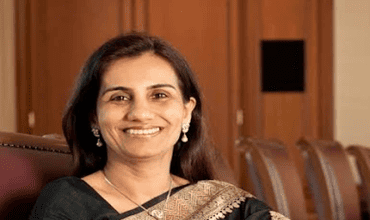Chanda Kochhar former CEO and MD of ICICI Bank is found guilty by a special court (called an appellate tribunal) for accepting bribe of ₹64 crore from the Videocon Group in return for approving a ₹300 crore loan to the company.
The ₹64 crore was a “quid pro quo” – meaning it was a favour given in return for the ₹300 crore loan. This money was paid just one day after the loan was given to Videocon. The loan was approved by a committee that included Chanda Kochhar. But she didn’t inform the bank that her husband had ties with Videocon. Because of this, the tribunal said Kochhar did not disclose her conflict of interest when approving the loan, and that giving the loan went against ICICI Bank’s rules.
How the bribe was paid?
-
The tribunal said the bribe money was not paid directly.
-
Instead, Videocon sent ₹64 crore to a company called SEPL.
-
SEPL then sent the money to NuPower Renewables (NRPL), which was run by Chanda Kochhar’s husband, Deepak Kochhar.
-
Although the paperwork said NRPL belonged to Videocon’s chairman, the tribunal found that Deepak Kochhar actually controlled it.
Action taken by ED against Chanda Kochhar
- The ED charged Kochhar and her husband under the Prevention of Money Laundering Act (PMLA).
- The tribunal accepted statements under the Prevention of Money Laundering Act (PMLA) as valid evidence.
- It said the ED had shown enough proof that the ₹64 crore was a bribe for the loan.
-
The Enforcement Directorate (ED) had frozen assets worth ₹78 crore from the Kochhars.
-
In 2020, another authority had given them relief and said the assets should be returned.
-
Now, the tribunal has reversed that decision and supported the ED’s action, saying the earlier ruling ignored key facts and opens the door for further legal action.
Explanation of Few Financial Terms Used Here:
Conflict of Interest: A conflict of interest happens when someone’s personal interests like money, relationships, or other benefits could affect the decisions they make in their job or role. It doesn’t always mean the person did something wrong but it can lead to unfair or biased decisions if not handled properly. That’s why people are expected to disclose conflicts and avoid being part of related decisions.
Appellate Tribunal: An appellate tribunal is a special type of court that hears appeals that means it reviews decisions made by lower authorities, courts, or regulators. It doesn’t conduct a full trial, but reviews what was already decided. It is usually faster and more focused than regular courts. It can change, cancel, or confirm the earlier decision.





